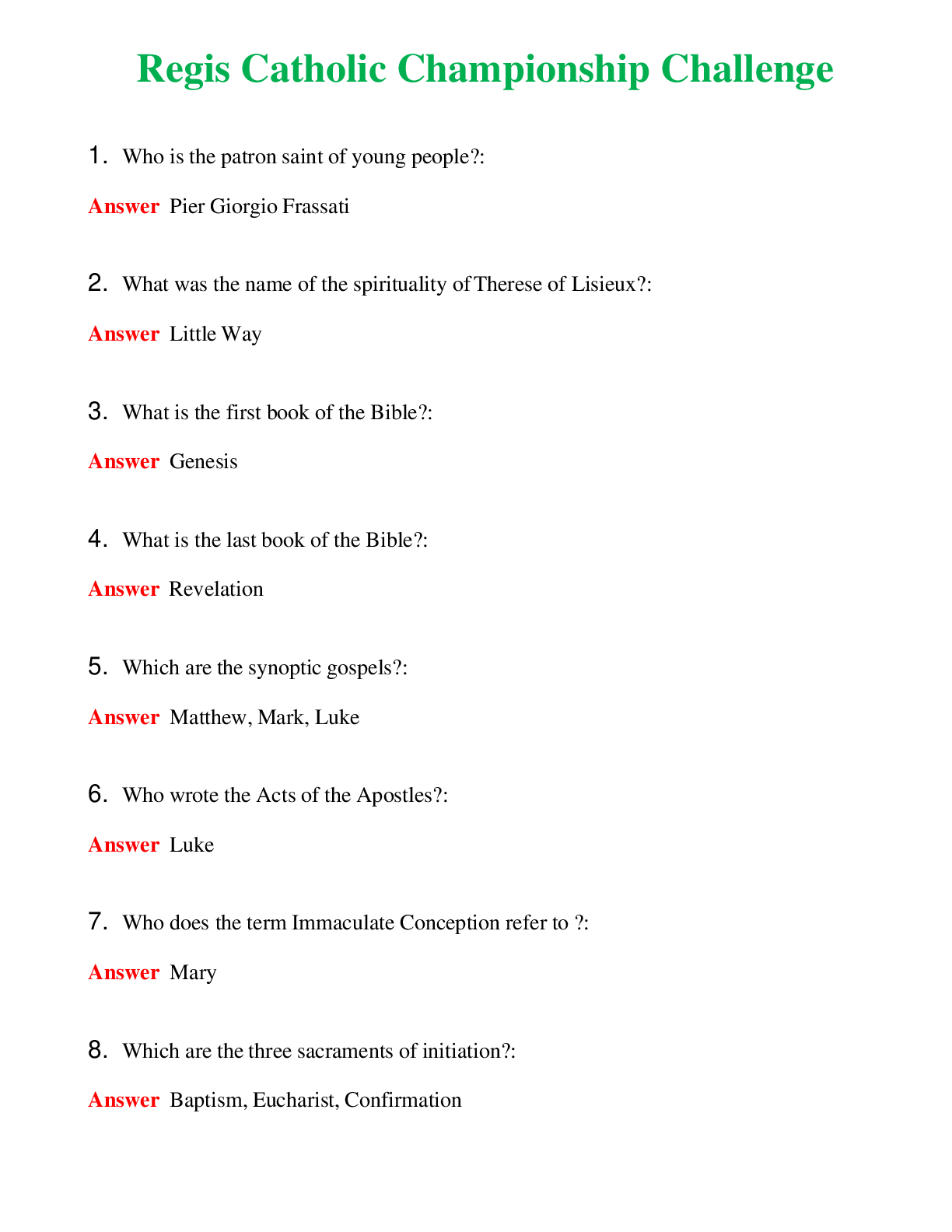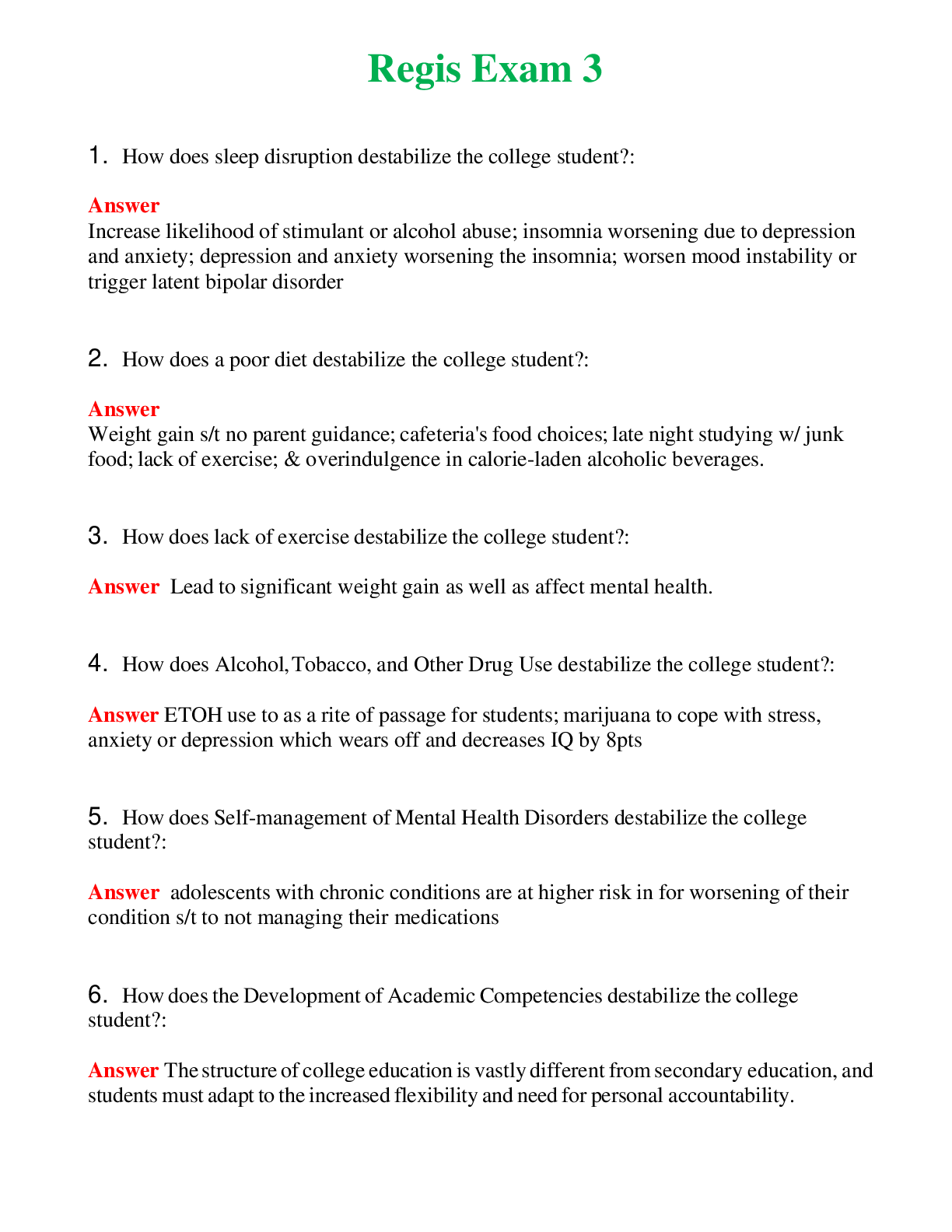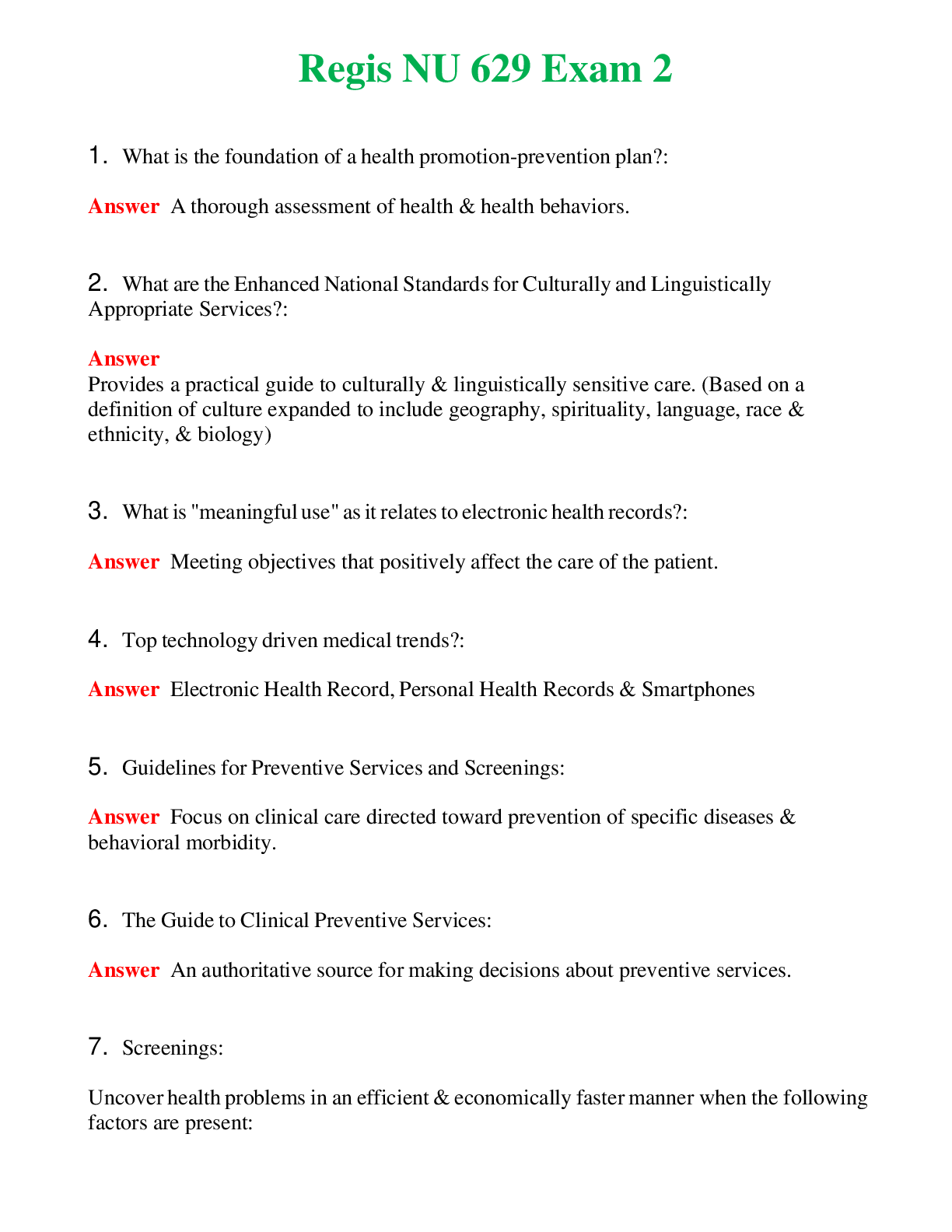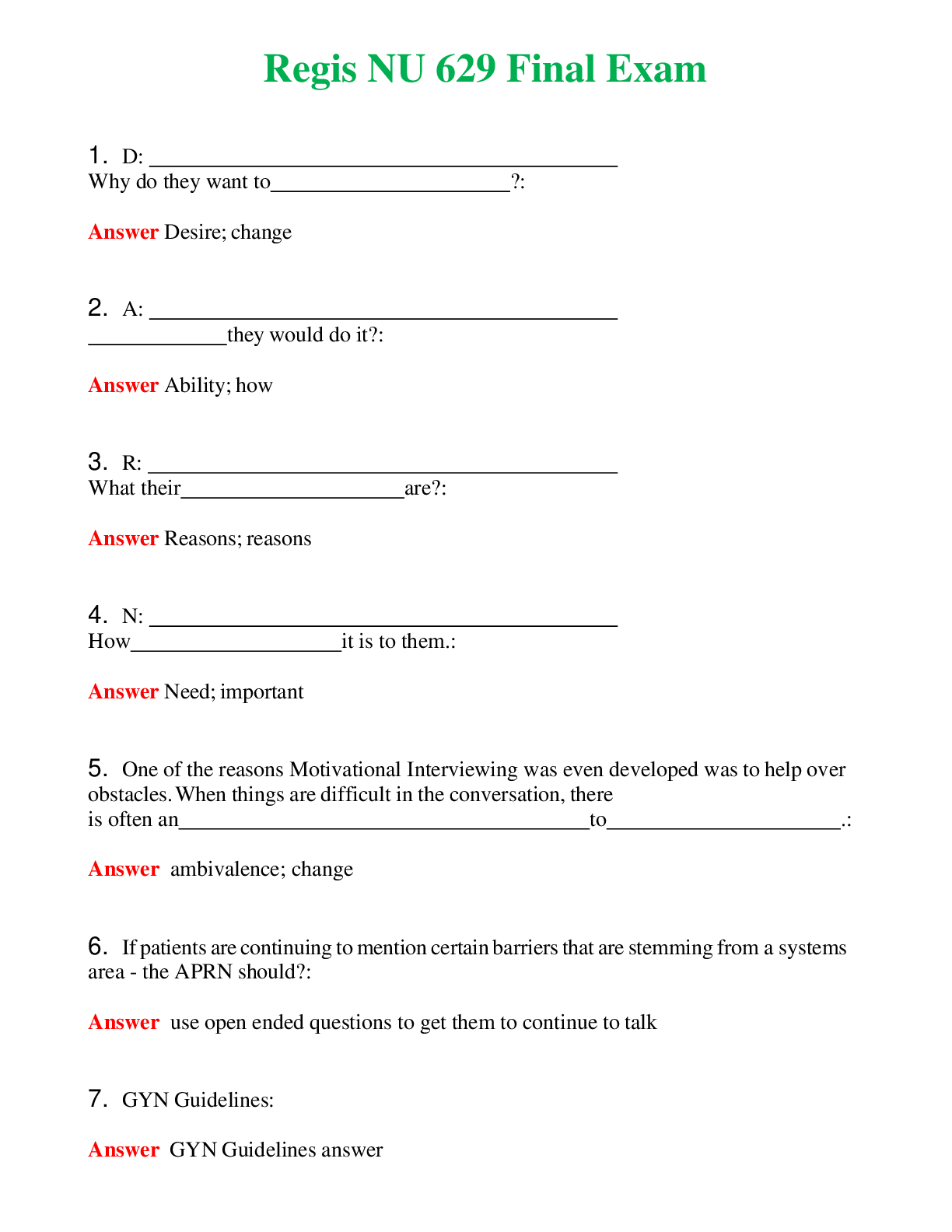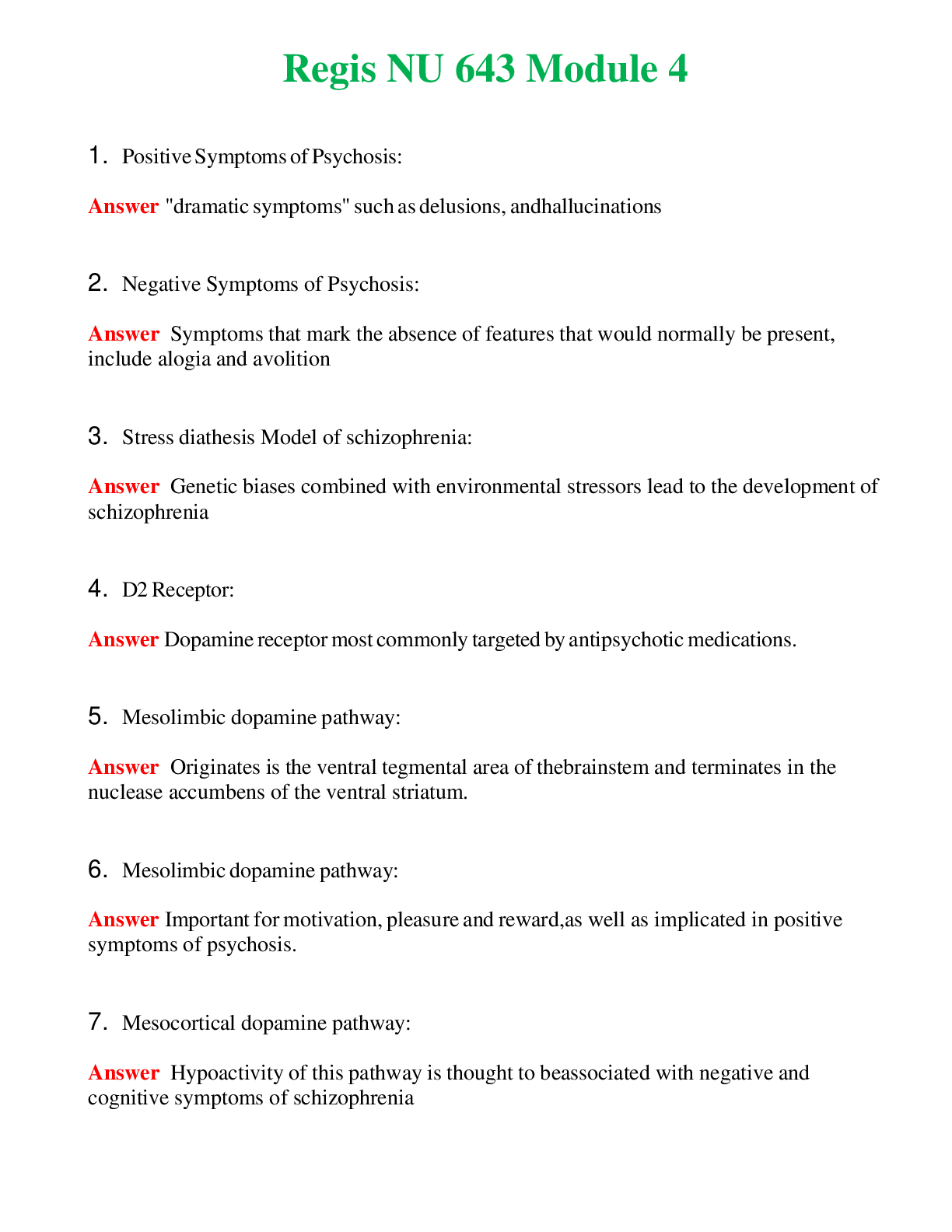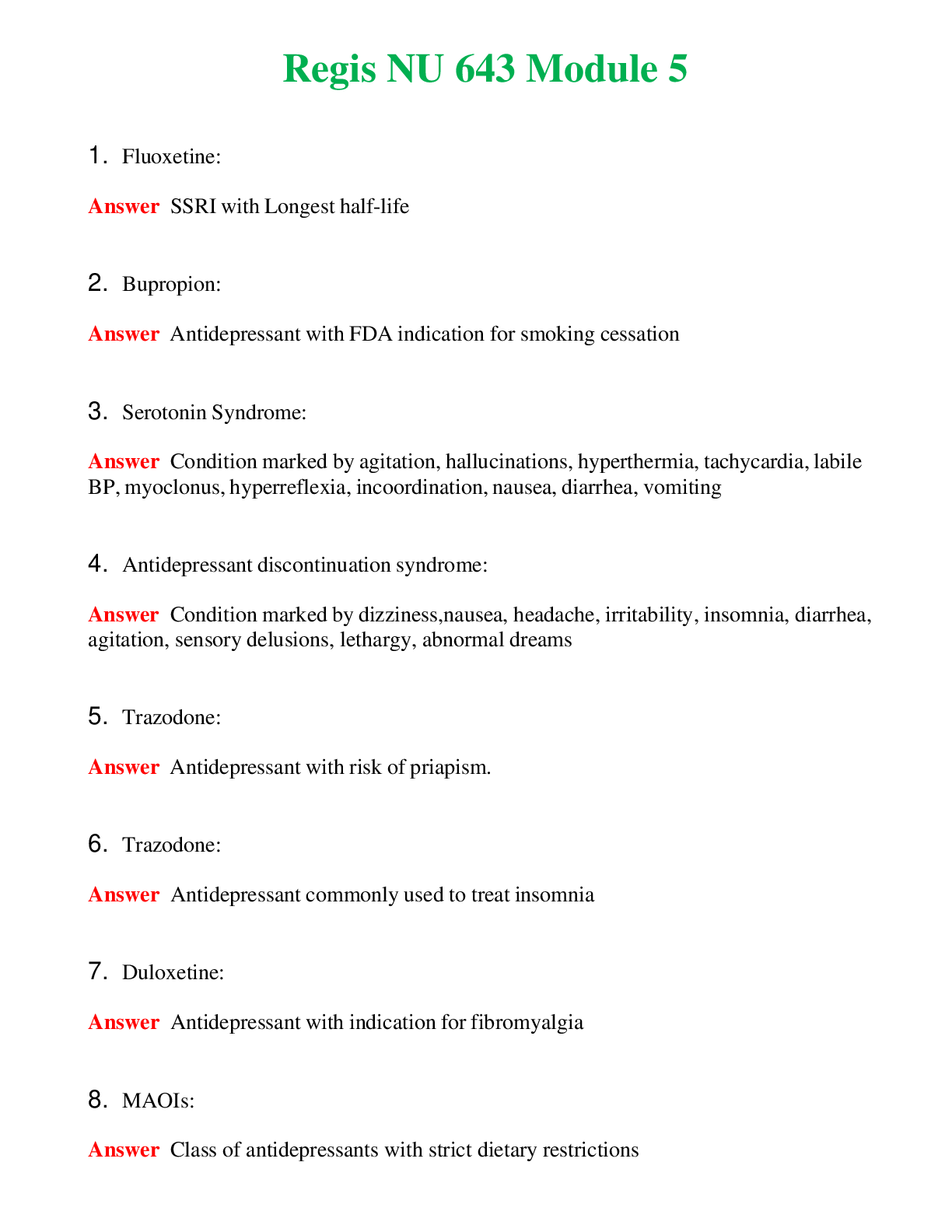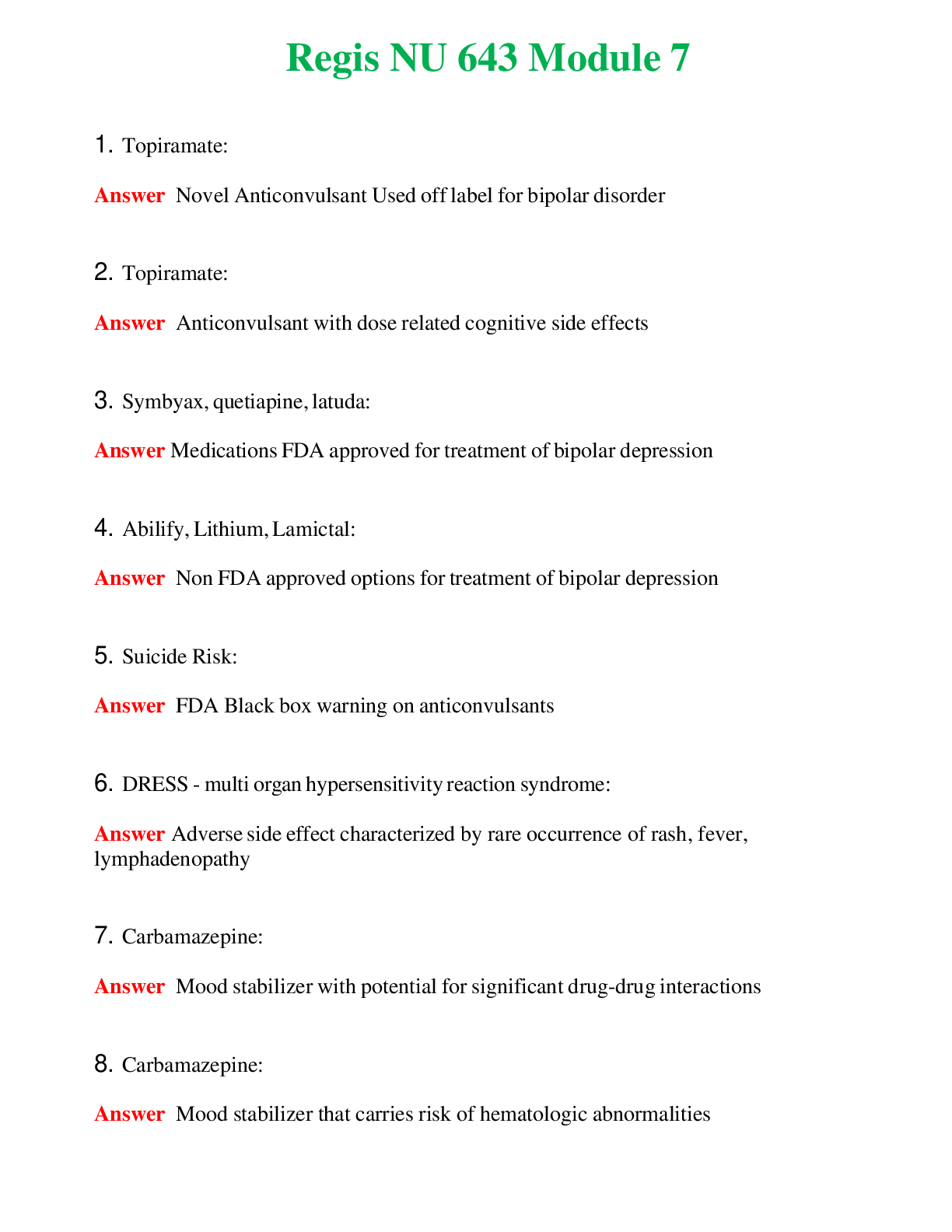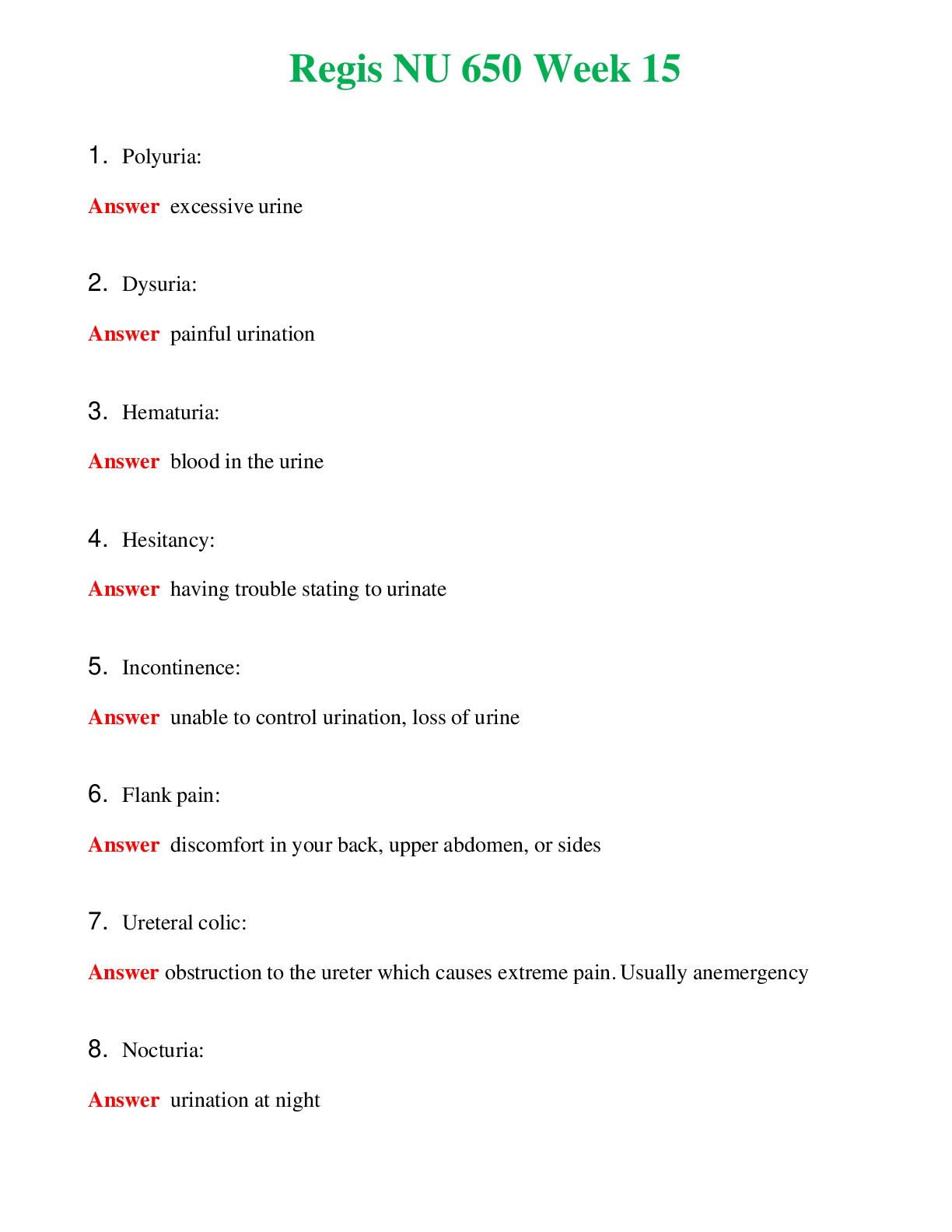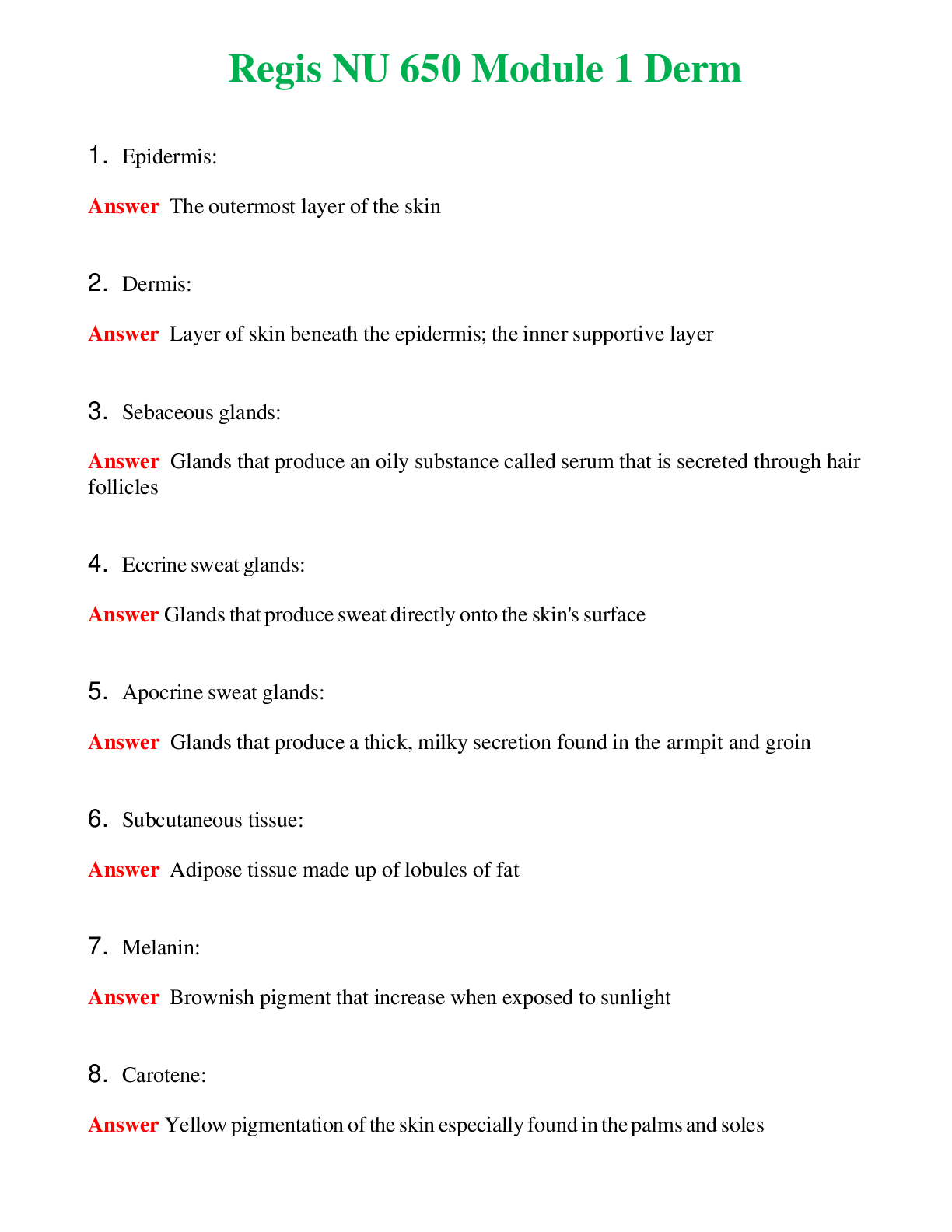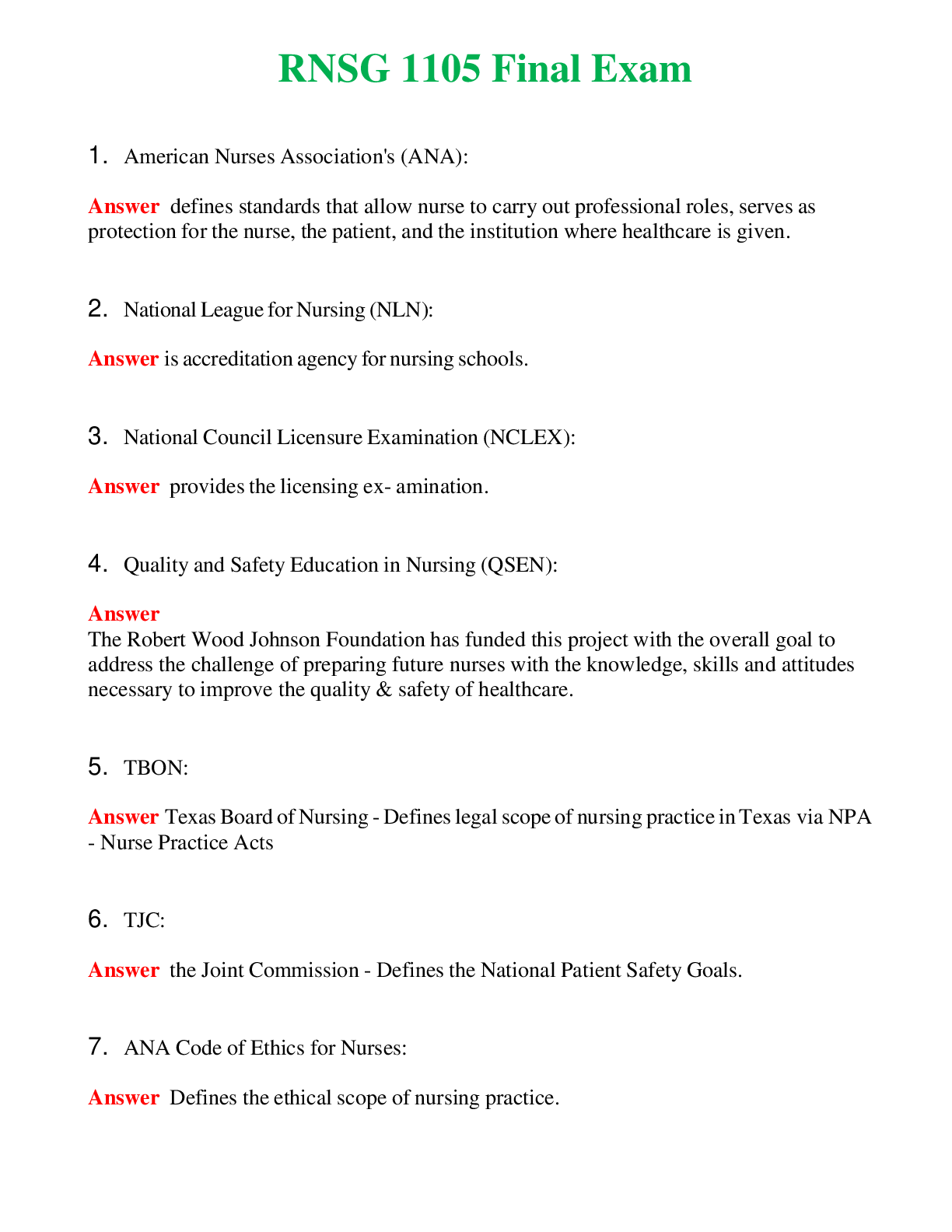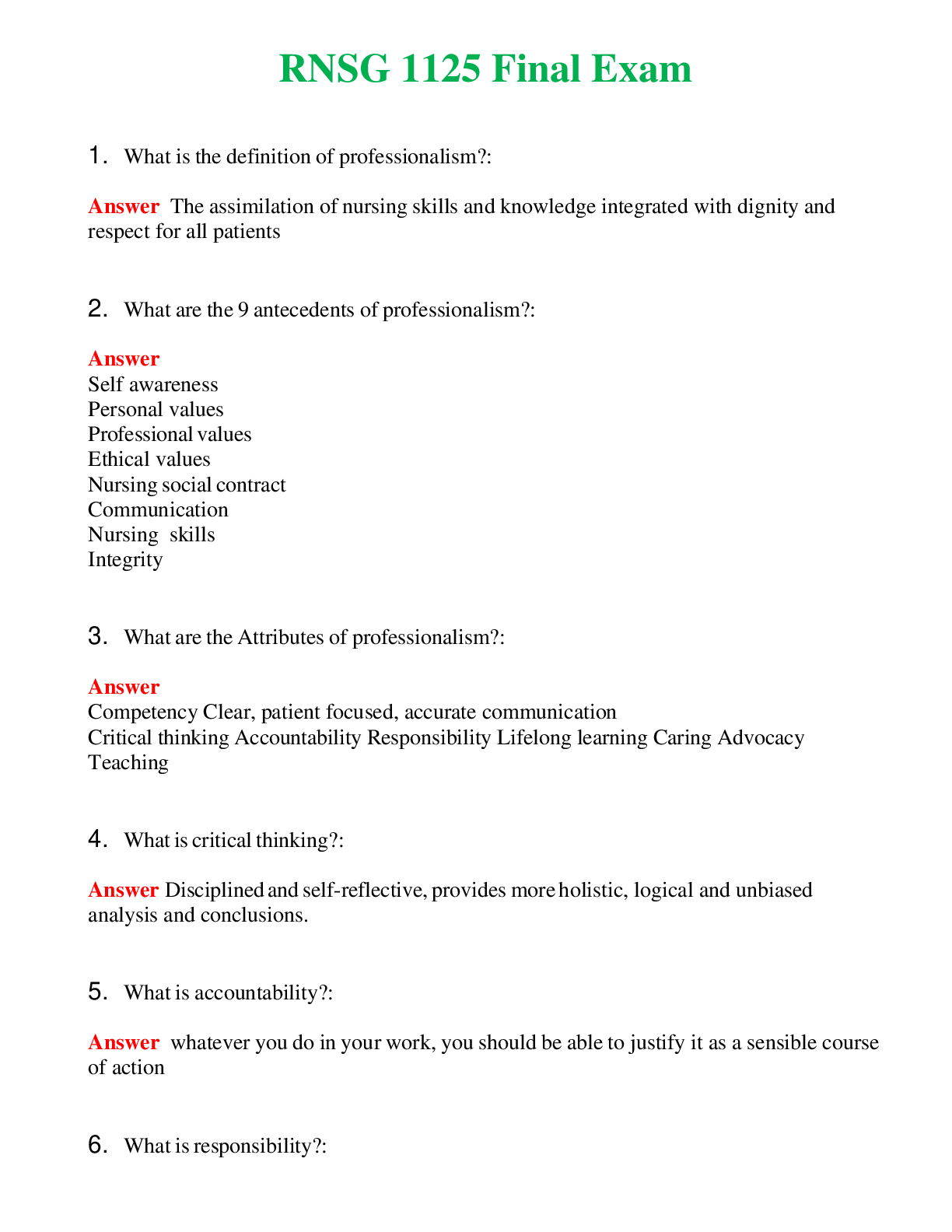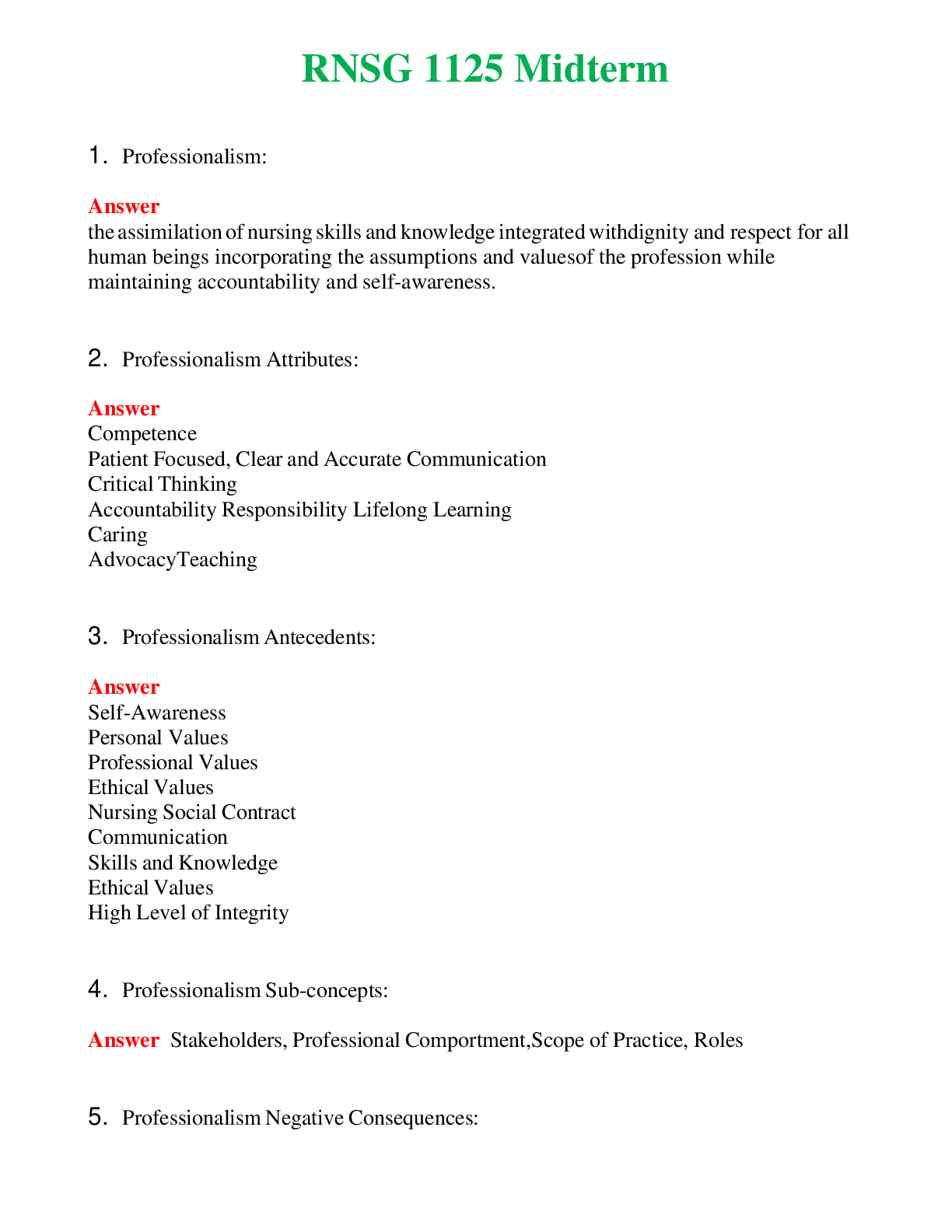Final Exam BUSI 409 exam done in 2019(Graded A)
Document Content and Description Below
Final Exam BUSI 409 exam done in 2019(Graded A) • Question 1 6 out of 6 points Assessing requires evaluating whether the organization is financially strong or ... in jeopardy and looking at the liabilities as well as the revenue and expenses shown on the statement of activities. • Question 2 6 out of 6 points A nonprofit organization considering selling a product is evaluating the marketplace for competitors. This is an example of exploring: • Question 3 0 out of 6 points In Crutchfield and Grant’s list of exemplary organizations, all have created committed on their behalf. • Question 4 6 out of 6 points Most business plans begin with a(an) that gives a thorough but succinct overview of the major points made in the following sections of the plan. • Question 5 6 out of 6 points Successful partnerships have logic to them, and a nonprofit seeking a corporate sponsor needs to think in terms of the company’s: • Question 6 6 out of 6 points Robert and Betty invested in an insurance policy with their college alumni association being the beneficiary. This is an example of which type of giving? • Question 7 6 out of 6 points In 2013, Russia passed: • Question 8 6 out of 6 points A nonprofit CEO is comparing the amount of money her organization uses to raise funds and the cost of overhead. The CEO is using a(an) __________ to assess organizational performance. • Question 9 0 out of 6 points The is a classic depiction of how individuals develop their giving relationship with an organization. • Question 10 6 out of 6 points Often equivalent to six months or one year of the operating budget, are generally invested in very secure, short-term instruments such as bank certificates of deposit or money market funds. • Question 11 6 out of 6 points Which type of relationship is not a nonprofit-corporate relationship? • Question 12 6 out of 6 points A nonprofit organization invited its donors to a formal dinner to thank them for their support to the organization. Which step of the fundraising process is the nonprofit performing? • Question 13 6 out of 6 points An organization that is possesses sufficient cash at the right times to meet its obligations as they come due. • Question 14 6 out of 6 points Yunus considers the voluntary giving that supports NGOs to be a form of ; in other words, nonprofits receive only the economic surplus that affluent people voluntarily give and do not have a sustainable revenue model of their own. • Question 15 6 out of 6 points This is the idea that companies make gifts that might not have a direct or immediate benefit to the bottom line, but that would generally help maintain a healthy society in which to do business. • Question 16 6 out of 6 points Payments made by recent immigrants to the United States who send funds directly to their home countries to support either families or projects are called: • Question 17 6 out of 6 points This type of organization is one that has activities throughout the world and that probably has a governance structure that places decision-making in the hands of individuals from multiple countries. • Question 18 6 out of 6 points Robert made a large financial gift to the hospice that provided his wife with end-of-life care in gratitude for their service. Robert would be classified as a _______ type of donor. • Question 19 6 out of 6 points This is an activity undertaken with the goal of eliciting charitable or philanthropic giving. • Question 20 6 out of 6 points An important tool in planning and managing a campaign is the , which reflects the proportional giving necessary to achieve the campaign’s overall goal, starting with a lead gift that is at least 10 percent of the goal, and then doubling the number of gifts needed at each successively lower dollar level. • Question 21 6 out of 6 points This is an arrangement under which the company contributes either a fixed amount for each sale of a product or a specified percentage of its sales of a product to the nonprofit, usually in connection with a short-term promotion. • Question 22 6 out of 6 points This provides a snapshot of the organization at a point in time, usually the end of a fiscal year. • Question 23 6 out of 6 points Although philanthropy in some form is common around the world, organized fundraising and philanthropy on a massive scale are still primarily a(an) phenomenon. • Question 24 Needs Grading Explain how Ashoka Fellows are selected. • Question 25 Needs Grading Identify two of the most common solicitation methods and discuss the advantages and disadvantages of them. [Show More]
Last updated: 3 years ago
Preview 1 out of 4 pages
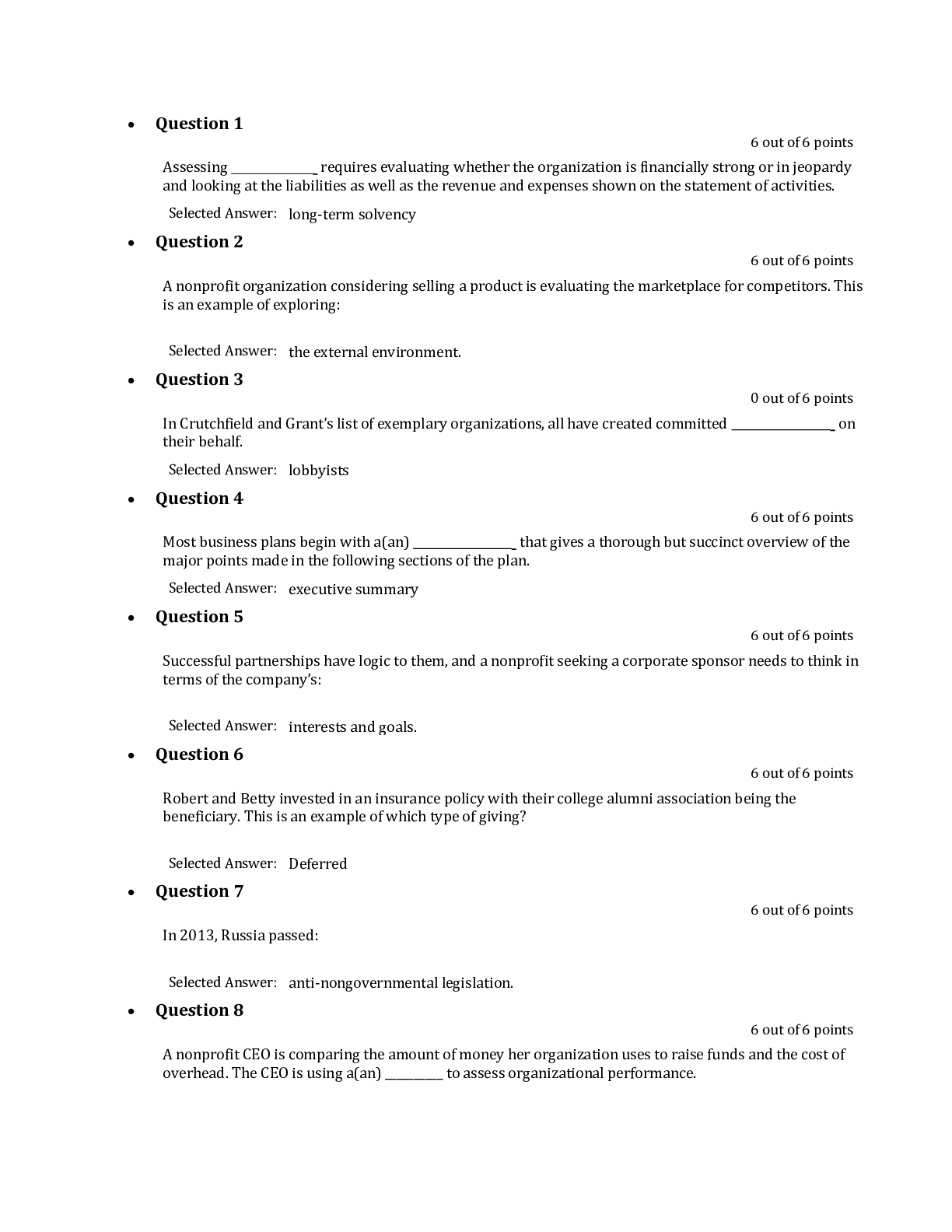
Buy this document to get the full access instantly
Instant Download Access after purchase
Buy NowInstant download
We Accept:

Reviews( 0 )
$12.00
Can't find what you want? Try our AI powered Search
Document information
Connected school, study & course
About the document
Uploaded On
Oct 17, 2020
Number of pages
4
Written in
All
Additional information
This document has been written for:
Uploaded
Oct 17, 2020
Downloads
0
Views
95

.png)






.png)




